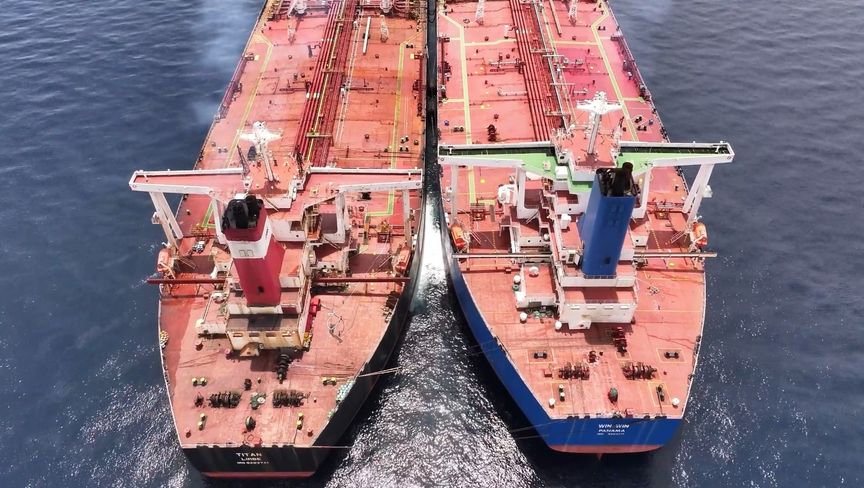
A clandestine fleet of aging vessels has emerged as a key player in the global oil trade, approximately 40 miles east of the Malaysian peninsula. These ships, often operating under flags of convenience and lacking insurance, converge daily to conduct illicit ship-to-ship transfers of sanctioned Iranian oil. This shadowy network has allowed billions of dollars worth of Iranian crude to reach China, despite official denials by Beijing.
A five-year analysis of satellite imagery by Bloomberg News reveals the staggering scale of these operations, which have proliferated under the pressure of U.S. sanctions. The frequency of ship-to-ship transfers in this region has more than doubled since 2020, with some days witnessing over ten separate encounters.
While precise figures are
elusive, conservative estimates suggest that around 350 million barrels of
Iranian oil were transferred in this manner during the first nine months of
2024. At current oil prices, this equates to a value exceeding $20 billion.
Multiple sources within the oil,
shipping, and maritime security sectors confirm that the majority of the oil
involved in these transfers originates from Iran. The vessels used in these
operations are often linked to Iranian entities, as the alternative route from
Russia is deemed economically unfeasible.
The choice of this specific
location offers several advantages: favorable weather conditions, minimal
oversight, and the ability to operate outside the purview of authorities.
This clandestine trade benefits
both Iran and China. For Iran, it provides a lifeline, allowing the country to
circumvent sanctions and generate vital revenue. China, meanwhile, gains access
to discounted Iranian oil, bolstering its domestic energy security. By
utilizing a complex network of intermediaries and shell companies, Chinese
entities can obscure their involvement and avoid potential secondary sanctions.
The United States has expressed deep concern over this illicit trade, which undermines its efforts to pressure Iran and Russia. While the U.S. has urged Malaysia to take action, the Southeast Asian nation has been reluctant to intervene.





